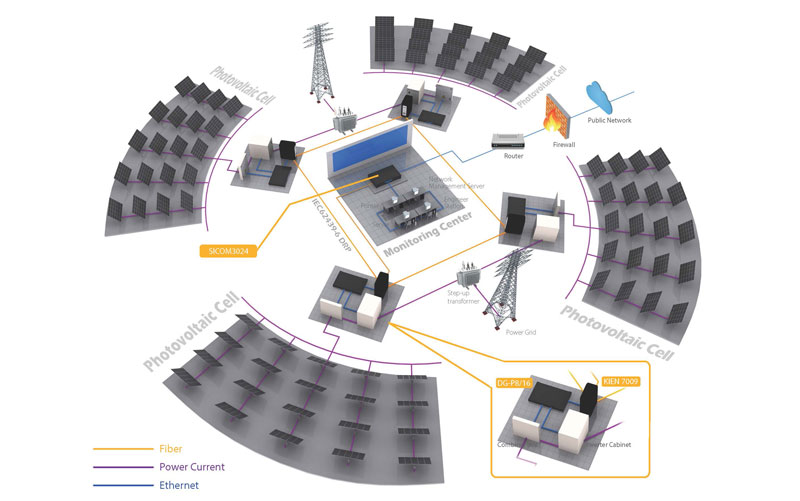Solar farms use semi-conductive components to absorb solar radiation and turn it into electric energy. Solar energy is becoming common in the global energy market because of its endless storage and low cost. Solar energy is developing quickly around the world and is considered an important part of sustainable development in every country. Solar power stations utilize photovoltaic cells combiner boxes, low-voltage DC cabinets, inverter cabinets, low-voltage AC cabinets and step-up transformers.

Solar power plant monitoring systems use real-time monitoring of each component within the PV power station. The purpose is to monitor the station's running state making sure that the power generation system is stable.The system requires:
● Product per formance in harsh climates and environments at PV power plants
● Prevention from EMI/EMS interference
● Strict MTBF requirements
● Network management systems
● Support for ring topology network
● Available bandwidth for video monitoring
● Data collection from intelligent terminals through gateways
● Ethernet access via serial ports
Fanless design, EMC level 4, operating temperatures-40℃ to 85℃, IP40 protection levels
At least 300,000 hrs MTBF, one-key recovery
Low power consumption designs
NMS software, KYVISION® provides integrated network managment with alarms and topology management
Supports IEC62439-6/DRP to provide network recovery time in less that 20ms in ring topology networks
Gigabit ports maximum of 28 ports Rack mounted products and high-voltage DIN-Rail products
DG series intelligent gateways support several communication standards including IEC61850 for collection of raw data from intelligent terminals, data exchanged using communication protocols IEC61850-8-1(MMS)
IEC60870-5-104, Modbus over TCP/IP, DNP3.0 over TCP/IP
Serial servers connect serial devices to Ethernet networks